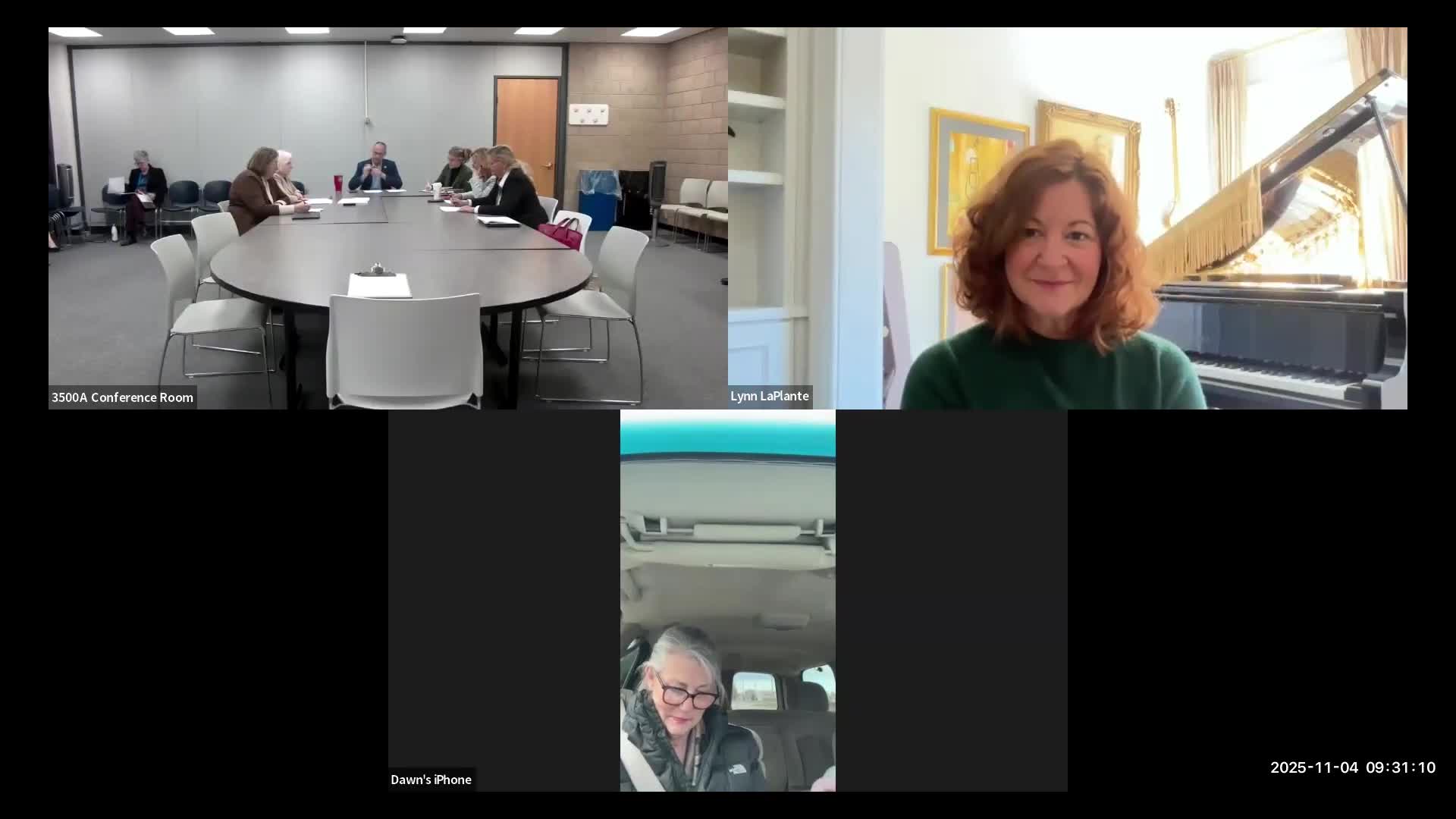DuPage committee backs plan to redirect $2.1M in small-grant funds to food aid amid SNAP uncertainty
Get AI-powered insights, summaries, and transcripts
Subscribe
Summary
Chair opened the meeting by flagging a growing food‑security crisis tied to possible interruptions in SNAP benefits and said county leaders and community partners had met to consider immediate responses.
Chair opened the meeting by flagging a growing food‑security crisis tied to possible interruptions in SNAP benefits and said county leaders and community partners had met to consider immediate responses.
Mary, a community services official, told the committee county staff are directing residents to a network of about 47 food pantries, increasing emergency food bags for walk‑in clients and buying gift cards funded from the county’s DSSA charitable fund to help households who arrive at county offices. "We're making sure folks are directed to food pantries," Mary said. She added that large pantries have been asked to coordinate operationally and that the county would ask employees to consider contributions to the DSSA fund to cover immediate needs.
Committee members discussed communication and logistics. The county’s communications office pointed members to a press release and to dupagecounty.gov/food, and recommended promoting the county’s 2‑1‑1 line — including a shareable 2‑1‑1 graphic the communications office is distributing — so residents can reach live assistance and be screened for other programs. "We want to drive our traffic to 2‑1‑1 so they can get live assistance," the chief communications officer said.
Committee members cited scale and capacity concerns. The chair said about 39,000 households in DuPage County receive SNAP and estimated replacing that food would cost "roughly around $14,000,000 a month," a figure cited during discussion. Members and staff warned large food pickups may be constrained by pantry storage, parking and volunteer capacity and stressed that county aid should account for geographic access so smaller, more distributed pantries are supported as well as larger providers such as Loaves & Fishes.
The chair proposed using $2,100,000 remaining in the small human services grants account as an immediate county food line item. Members expressed differing views: several supported rapid use of the funds for food assistance, while at least one member cautioned that the small grants program supports smaller nonprofits’ year‑ahead programming and warned against pulling the rug out from under those organizations. The committee nevertheless registered a 5–1 consensus in favor of moving the $2.1 million into a food line item; the chair said the transfer will appear as a formal budget transfer item in a future Finance agenda for final action.
Other near‑term measures described included tapping Giving DuPage for volunteer recruitment, creating a single shareable list of most‑needed pantry items (staff said the committee will circulate a consolidated list drawn from pantry partners), and coordinating with large pantries to ensure geographically equitable distribution. Members also asked staff to monitor 2‑1‑1 call and web traffic to measure outreach effectiveness.
Why this matters: Committee members emphasized that food is a basic necessity and that state or federal funding pledges — even when announced — can take days or weeks to flow to local providers. The committee’s direction to create a county food line item and to prioritize outreach and coordination is intended to bridge that gap while staff and partners pursue longer‑term solutions.
Sources and attribution: Quotes and attributions come from participants who spoke during the Human Services Committee meeting; all quotes in this article are drawn from the meeting transcript.
Next steps: The chair asked committee members to seek support from other board members before the next meeting; finance staff will prepare a formal budget‑transfer item for the committee and the Finance committee to consider.
